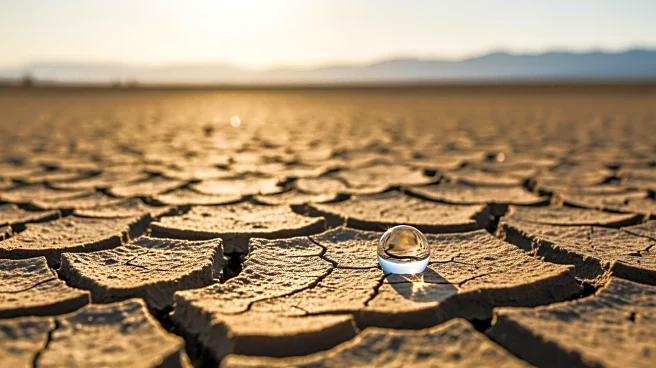What's Happening?
Iran is facing a severe water crisis, with President Massoud Pezeshkian warning of potential water rationing and evacuation in Tehran if rains do not arrive by December. The situation is exacerbated by relentless
heat and a lack of rainfall, which have been 82% below long-term averages. This crisis is reminiscent of Cape Town's water shortage in 2018, where dramatic conservation efforts and the return of seasonal rains temporarily alleviated the situation. Globally, water stress is becoming a critical issue, with urban areas facing overuse and agriculture and power generation being the largest consumers of water.
Why It's Important?
Iran's water crisis serves as a stark reminder of the growing challenges posed by climate change and water scarcity. The potential evacuation of Tehran highlights the urgent need for effective water management and conservation strategies. Globally, water stress is affecting urban areas, agriculture, and power generation, with significant implications for economic stability and public health. The situation underscores the importance of addressing climate change and developing sustainable water management practices to prevent similar crises in other regions. The crisis in Iran is a warning sign for countries facing similar challenges, emphasizing the need for proactive measures.
Beyond the Headlines
The water crisis in Iran and similar situations globally highlight the ethical and environmental dimensions of water management. The reliance on outdated systems and the lack of adaptation to climate change are critical issues that need to be addressed. The crisis underscores the importance of international cooperation and investment in sustainable water infrastructure. The potential evacuation of Tehran due to water shortages could have significant social and economic impacts, affecting millions of residents and straining resources. The situation calls for a reevaluation of water policies and practices to ensure long-term sustainability and resilience.









